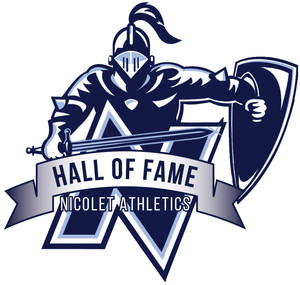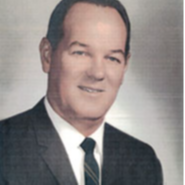Class of 1974 - Track
Linn Grieb (Wright) - a legacy of and for change!
Linn began her Nicolet running career as a member of a Nicolet girls track “club” which had to practice at 5:30 am because, as she put it, “we would be too distracting to the boys.” But despite the early training time that “club” managed to take 2nd place in the 1972 Class A WIAA State Meet and thus in 1973 was finally allowed to become a “team” and practice on the track after school. Still equality moved slowly and in 1974 instead of a receiving a chenille varsity letter Linn received a silver charm with a small blue stone.
Linn was a three-time state champion setting a new state record in the 100-yard dash with a time of 11.1 in 1972 and winning the long jump the same year with a mark of 16-11. Her sectional time of 11.0 that year ranked her 5th in the nation. (Converted to the 100-meters race today her time would be 12.03) and that conversion still remains the top Nicolet mark for that distance. Linn also won the 100-yard dash in 1974 with a time of 11.23.
After high school, Linn went on to compete in college at the University of Illinois at Urbana-Champaign. In those days there were no recruiters for female athletes or many scholarships. Those few scholarships that did exist were partial scholarships (tuition only) and were only given to female athletes (at most institutions) only after two years of winning performance at the collegiate level. Linn set various records at the U of I in the 100, 60, 200 and 300—some were in meters and some were in yards—though most meets still used yards for competition. Two of those marks still stand in the Top 5 of U of I school history.
In addition to minimal scholarship opportunities, there was barely any travel budget for female college athletes, that meant Linn and her teammates were basically confined to in-state meets, Big 10 Conference meets and Nationals. In addition, all women’s coaching positions were part-time and usually staffed by a graduate student. The team bought much of its own equipment, shoes and workout uniforms. Women’s team members were required to have a B average in school to qualify for participation, which, incidentally, was higher than the required C average for the men.
Linn is proudest of being a significant part of the change to open up opportunities for women in sports. That came when Linn and her teammates decided to press for changes after two of their athletes—one a former gymnast Olympic silver medalist and another gymnast ranked #1 in the nation out of high school were denied scholarships. She said that they were told that they had not proven themselves sufficiently in their sport and like everyone else would have to wait two years before being considered for a scholarship. So she and her teammates found a young attorney to represent them . . . they won . . . and things improved.
Most high school female athletes today take their equality with male athletes for granted. Linn was part of a generation of young women who though threatened with being banned from participating in their sport were willing to risk giving up what they loved even though they knew that when change came, it would not benefit them. They simply did it for future generations.
Records are just rungs in the ladder for future athletes to reach and surpass - once surpassed the legacy of that record ends and another takes over. But the legacy of change, in women’s high school and collegiate sports is one that will last a very long time. Linn owns that legacy!






